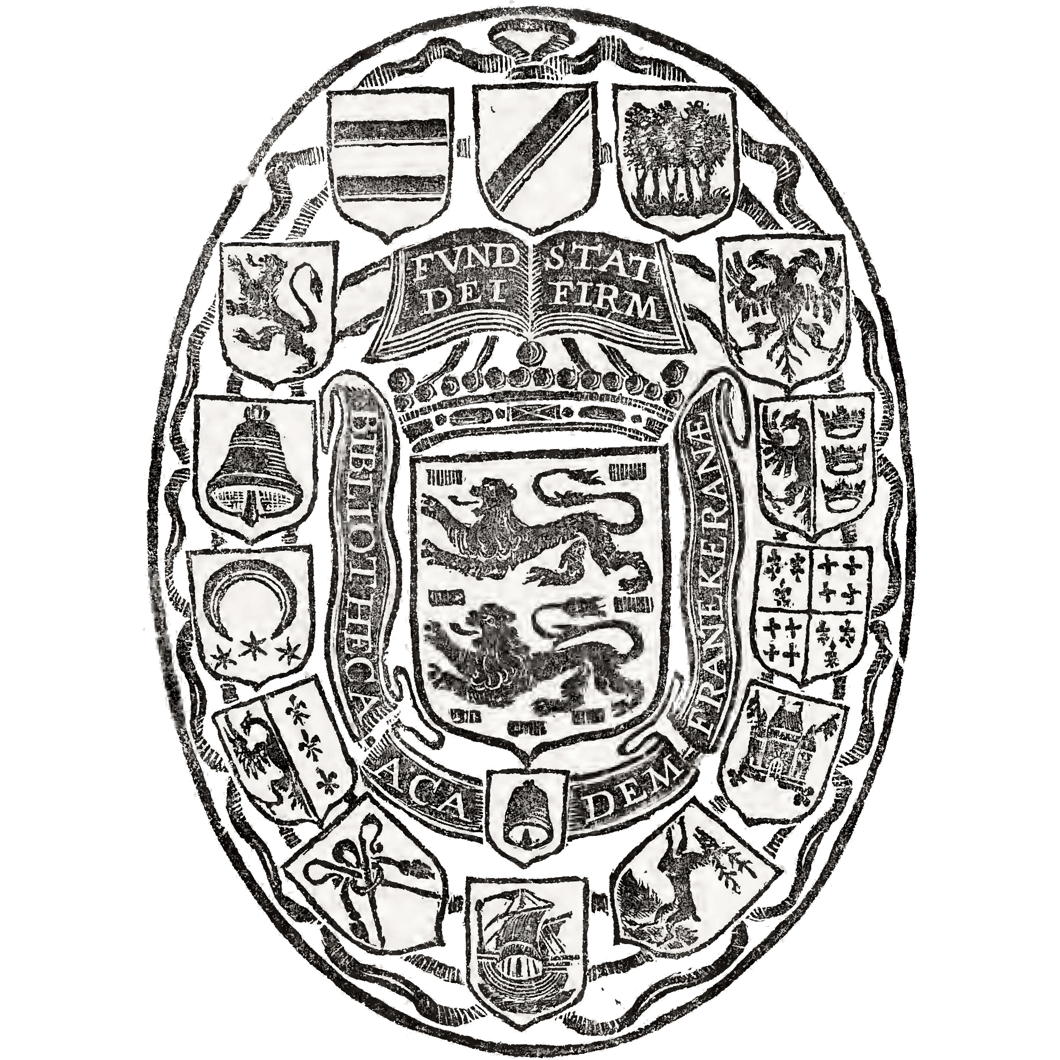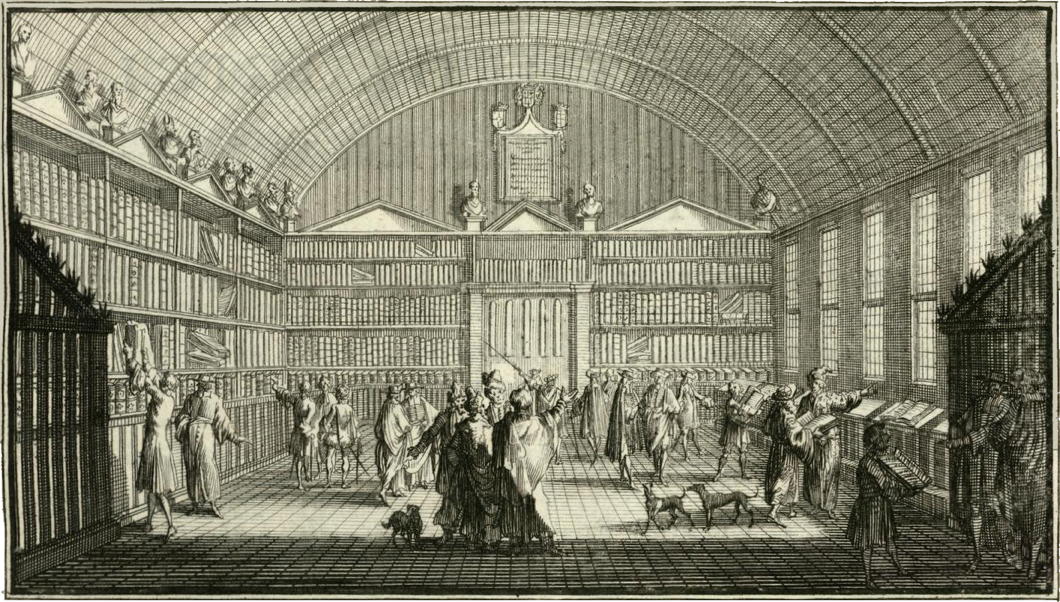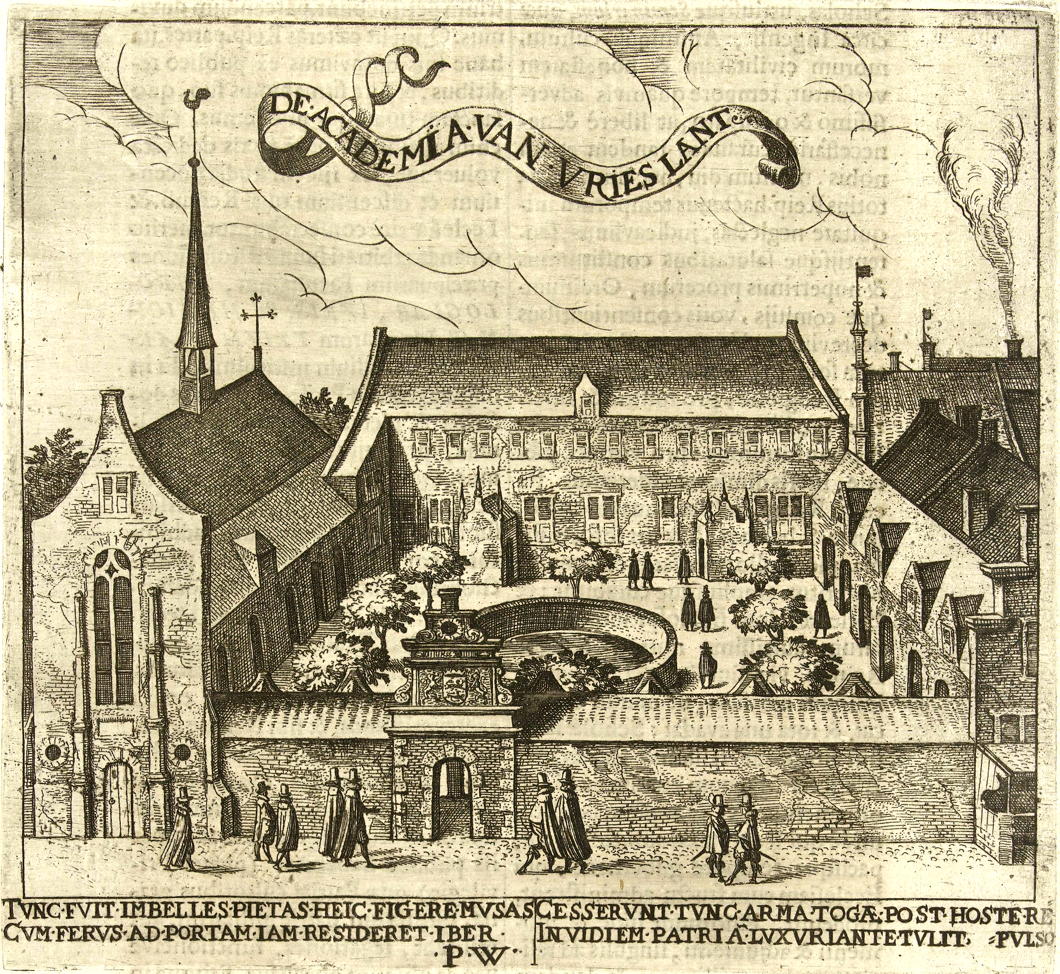AMONG THE CURIOUS customs of the Netherlandish universities is a unique privilege whereby Frieslanders who are postgraduate students at the Rijksuniversiteit Groningen may defend their thesis in the Church of St Martin in Franeker. This privilege is also extended to those whose dissertations are on Frisian subjects or themes. The reason for this is that Franeker — one of the historic eleven cities of Friesland and today a town of 12,000 souls — formerly had a university of its own.
The University of Franeker (or Academy of Friesland) was established in 1585 by Willem Lodewijk of Nassau-Dillenburg, stadthouder of Friesland, as a Protestant foundation in the former cloister of the Canons Regular of the Order of the Holy Cross (sometimes called the Crosiers) whose confiscated property helped fund the new university.

As the only institution of higher learning in the northern part of the United Provinces, the University of Franeker met with some success in its early decades and its Protestant theological faculty earned particular reknown.
Its most famous student — so far as I am concerned — was a young Petrus Stuyvesant who studied philosophy and languages at Franeker in the 1610s before being sent to be governor of New Amsterdam. Unfortunately the revelation of an amorous relationship with his landlord’s daughter prevented young Stuyvesant from completing his studies.
From 1614 onwards, however, Franeker found a strong competitor when a university was founded in Groningen that was more successful at drawing in students from Germanic East Frisia. By the 1790s it had only eight students.

In 1811, when the Netherlands were directly annexed to the French Empire, Napoleon abolished the university entirely, alongside those of Utrecht and Harderwijk.
Its revival under the United Kingdom of the Netherlands in 1815 met with little success as Franeker was denied the ability to grant doctorates and in 1843 even this academy was finally suppressed.
Incidentally, the fourteenth-century Martinikerk where Frisians can defend their theses today is also the only surviving medieval church in Friesland that has an ambulatory — and restoration work in the 1940s revealed twelve pre-Reformation frescoes of saints.

a Northumbrian of Frisian and New Yorkish origin

















